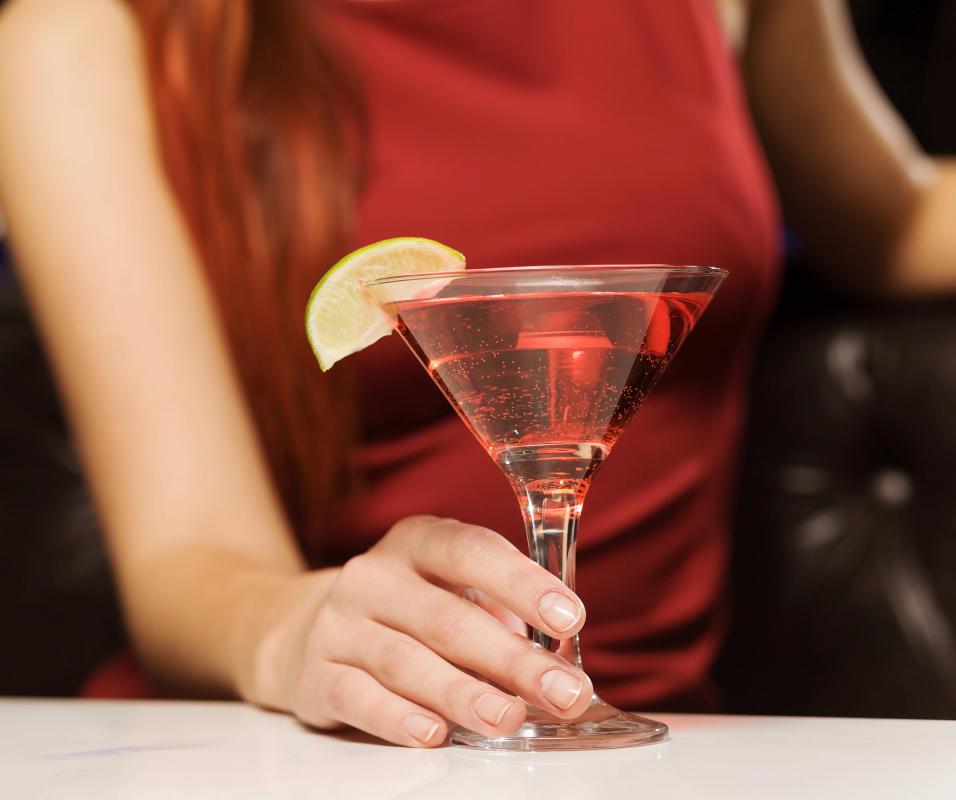At WiseGEEK, we're committed to delivering accurate, trustworthy information. Our expert-authored content is rigorously fact-checked and sourced from credible authorities. Discover how we uphold the highest standards in providing you with reliable knowledge.
What is Drunkorexia?
Drunkorexia is a term which has been coined to describe a disturbing intersection between eating disorders and alcohol abuse. Drunkorectics, aware of the high calorie content of alcohol, choose to limit their food intake to compensate for their drinking. The result, as one might imagine, is malnutrition, which leads to rapid weight loss and an assortment of other health problems. Drunkorexia is made even more problematic than traditional anorexia because it also integrates the problem of alcoholism, creating a condition which is very difficult to treat.
According to studies conducted by organizations which specialize on eating disorders, drunkorexia is primarily a problem for women, especially college age women, who are also susceptible to binge drinking. Some people who study the issue have suggested that it is caused by the glorification of weight loss and extremely thin bodies in Western society, and compounded by the fact that alcohol consumption is viewed as trendy and expected, especially among youth. Alcoholism and binge drinking have become to some extent socially acceptable in some groups, making drunkorexia an extremely complex problem.

Like many eating disorders, drunkorexia typically starts out slowly. A woman might, for example, decide to forgo a large evening meal out of concern for the calories she plans to consume later while drinking. Some diet plans such as Weight Watchers even encourage this behavior by reminding their adherents of the calories in alcohol and encouraging them to budget their caloric intakes wisely; the goal of such programs, of course, is not to encourage drunkorexia but to encourage women to drink moderately and eat well. Over time, the woman may start to cut down on meals more and more in order to drink, concerned about getting or staying thin, and full-blown drunkorexia will develop.

This condition is sometimes associated with bulimia, an eating disorder which involves a binge and purge cycle. Both anorexia and bulimia can be extremely dangerous on their own, but when combined with alcoholism, the effects can be especially problematic. A drunkorectic is subject to all the problems associated with binge drinking such as blackouts, health problems related to alcohol abuse, and sexual or physical abuse while intoxicated, and he or she must also contend with the effects of a serious eating disorder.
Some colleges have recognized the issue of drunkorexia, offering courses and counseling to young women to encourage them to think about nutrition in a healthy way. Prevention programs typically focus on eating a healthy, balanced diet and keeping overall alcohol intake moderate; some programs also attempt to address the deification of thin bodies in Western society, in an attempt to get at the root of the issue.
If someone you know is exhibiting signs of drunkorexia, you may want to encourage him or her to seek counseling. This is especially true if the suspected drunkorectic has ever been hospitalized as a result of alcohol poisoning or malnutrition. Be aware, however, that many people with eating disorders and drinking problems go to great lengths to conceal them, and your intervention will probably meet with substantial opposition. If you happen to be on a college campus, you may want to ask for help from resident assistants, instructors, and other college staff.
AS FEATURED ON:
AS FEATURED ON:












Discussion Comments
These young people need help!! Our society is so extremely individualistic that no one wants to meddle in the business of others' but some people are just crying out so strongly for help. To have a drinking problem AND an eating disorder all in o0ne? Parents, church leaders, friends, and high school and college counselors need to me much better about paying attention and understanding that there is something wrong and that it is OK to bring it up. Otherwise these young people will continue to suffer.
Post your comments